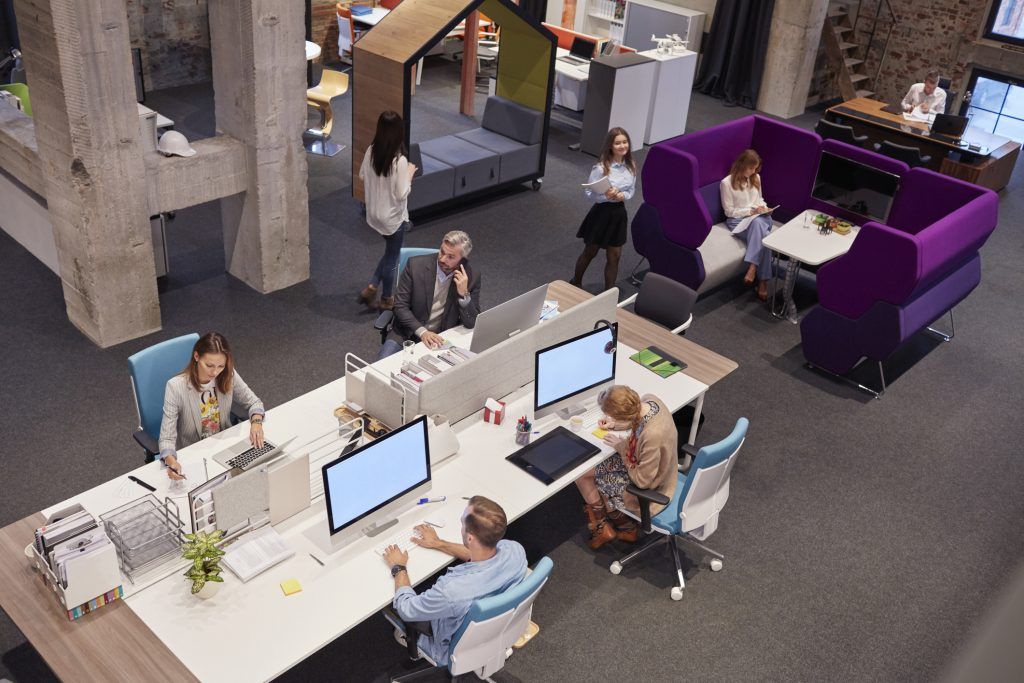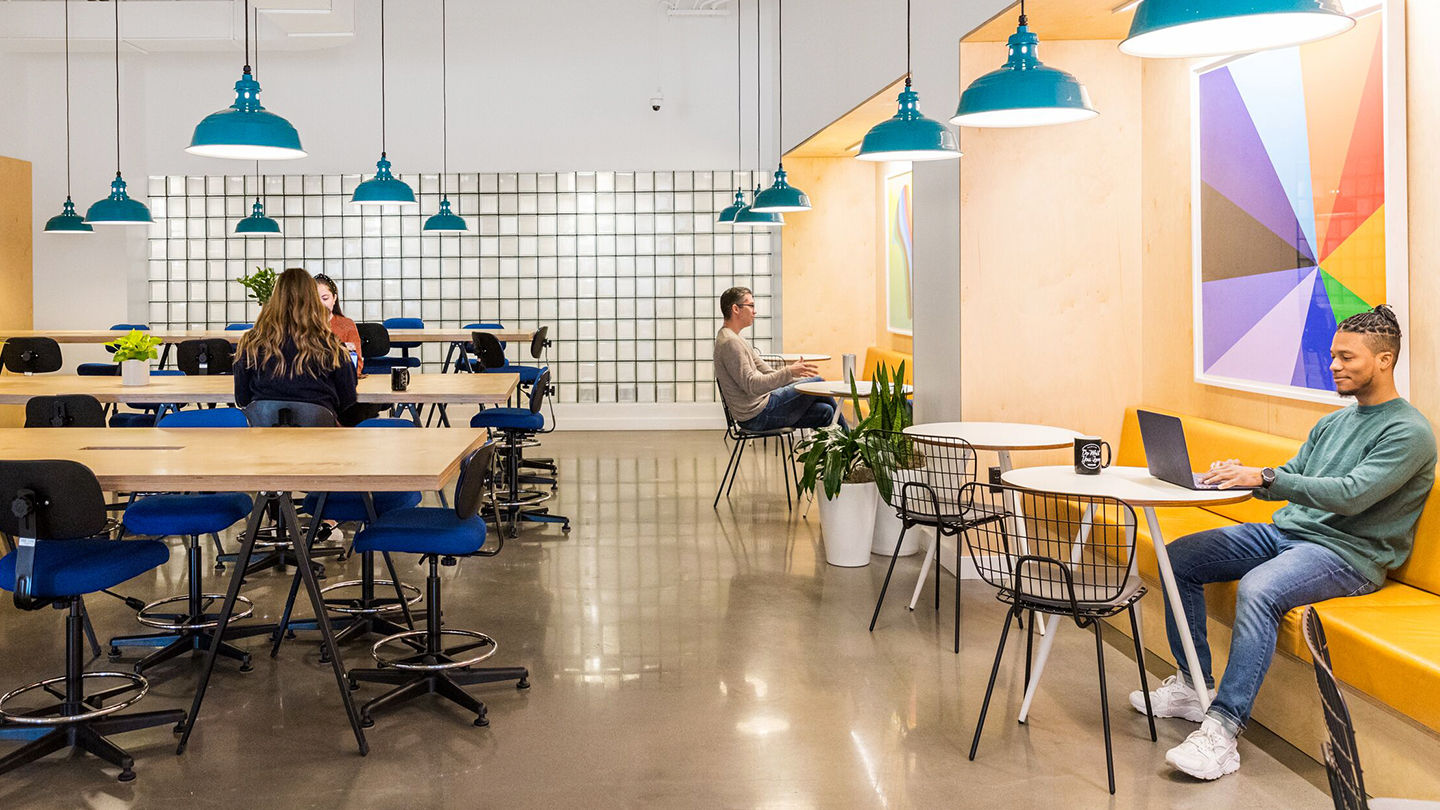The outlook of work has been widely debated and guessed. The 9-to-5 practice of working from a labeled office space has been upturned because of work-from-home, further cluttering the boundaries within work and play. While the fellowship of the office is certainly missed, extended periods spent indoors has highlighted the significance of a steady work-life balance, resilience, the need to be part of a society and a strong work culture. Flexible space is a word used to explain a variety of office types used by occupants to increase portfolio flexibility, reduce tenancy costs, and enhance partnership. Coworking is the most usual type, followed by administrators and incubators. Coworking spaces and setups tend to be in downtowns or thick neighborhoods, while directorates tend to be in metropolitan areas near huge employment hubs. The traditional, functional office space are shifting to a workspace designed around social interaction, collaboration, and relationship building. A better emphasis will be placed on technology and spaces that promote face-to-face interaction as the future of work progresses. Flexible workspaces have assisted this shift to the ‘new normal’ by offering businesses and employees the nimbleness they require to keep proceedings going. Flexible workspaces enable companies to experiment with emerging patterns such as work from spaces near to homes from locations across cities with membership choices like one-day passes. This gains time and cost spent on riding, provides an office-like atmosphere and more time to spend with loved ones.
Businesses are taken up a flexible workplace model for a extensive list of reasons, including:
Cost Reduction:
Purchasing/Leasing office space and their upfront costs of procurance can be an immense expenditure that hits the behind lines. Replacing flexible office space even in numerous cities can be much more profitable for any organization. Cost-effectiveness and approachability make flex spaces hugely beneficial during these rare times. It is relatively cheaper and suitable for enterprises since they can combine and share the rental outlay. This helps them direct their expenses and divert more resources into other aspects of their business to stay afloat.
Collaborative Hubs:
Association is key when it comes to running a business. Members of various departments must work together closely to make sure that operations progress as smoothly and effectively as possible. Some combined efforts can be conducted via facetime call, e-mail, or moment messenger, but it’s often much easier to work conjointly face-to-face. Flex office space grants businesses the time to bring employees together as a group whenever essential. Watching and speaking to one another personally is often far more productive than working within the limits of a digital platform.
Read also: “Modern Office Space – Everything You Need to Know“
Flexible Lease Terms:
The alterable lease terms are a significant advantage as it grants businesses to account for insecure times. With single office spaces, the companies mostly must execute rigid seven- to fifteen-year lease agreements, which make it complex for companies to stay planless. However, with flex spaces, the lease acts are relatively welcoming for the companies since they can prolong from a few months to as many years as the business may deem fit. They also allow the enterprises to influence their warehouse or office spaces when they are required to expand or curb their operations. Having a leasehold space could get a company into a fix due to the long and strict lease terms. Shifting to a lower serviced office could be the better solution due to the reduced and flexible lease terms that they offer.

Efficient and Hassle-Free:
Flexible workspaces are also an appealing and efficient means to fulfill business operations with adjustable membership selections, ready to move-in preparations, virtual office tours and user-friendly designs. This allows businesses to climb and expand presence in recent markets without setting up a permanent floor. They are also a centralized solution for legal and IT demands that are an added stress when setting up, letting companies to redirect these funds to hiring and innovation. With strength and safety taking priority, many flexible workspace providers have also executed a stringent set of measures such as sanitization and socially distanced accommodation.
Networking:
Flexible office spaces are all about assisting startup teams thrive, enveloping your coworkers and you with a mass of creative and driven professionals to spark thoughts. Startup founders can take advantage of networking with similar entrepreneurs, forging useful connections to help your business develop. A fostering environment for launching a new business, flexible office spaces also plan special events to boost a sense of community among its tenants. From meetup events to client speakers, your team can profit of perks that will broaden their professional network. Some coworking spaces offer specific programs aimed to help early-stage startups to measure quickly. Consent into these incubator-type atmospheres often includes resources to help members speed up their development, such as strategic services, advisership, and network distribution among other members.
Reduced Carbon Footprint:
By having distributed and smaller offices at different locations, the organizations save big on energy spending and other related expenses. Followed by a small commute implies fewer vehicles on roads and reduced energy being consumed, which unwittingly contribute towards making our environment purifier and free from Carbon Footprint which is truly a sore need of the hour.
Flex spaces are padding this gap by going a step further and giving the organizations an option to adopt remote-first policies and reshape their standing with the current market trends. They even go so far as to offer a network of workspaces inside and outside downtown for employees to use. Moving ahead with this idea, an enterprise passing the right flex space can devise a unique hybrid functional model for their employees to choose the workspace spot that works best for them and is helpful to collaborative working. Coffee houses and libraries are places where today’s workers might establish their laptops and perform their duties. The flexibility in work hours and risk to new environments is the new norm. Case in point: the start of flexible workspaces with subject and multifunctional rooms, hybrid workplace models, and well-equipped spaces trumps the traditional 9-to-5 and pragmatic spaces at a fixed location.
When companies and communal workspaces hold modern workers’ desire and need to do their work (and do it well), they can perform well, learn more, and collaborate as they want. The flexible workspace model is rising to become the workplace of choice for many employees and businesses. As the world of work changes to new technology and design trends, it’s more important than ever to remember what workers want, in which companies can gain as well: the flexibility of working.

